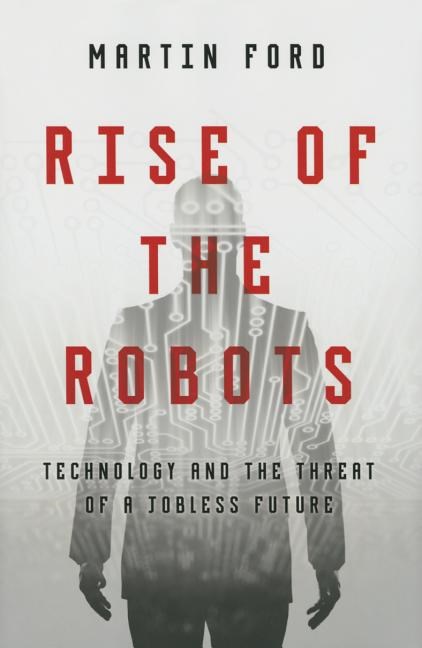The FT & McKinsey Business Book of the Year
November 23, 2015
Martin Ford takes home the prize for The Rise of the Robots, a look at the human and economic implications of rising technology.
There was a distinct shift in the conversations around technology in business this year. Whereas most books in recent years showed the world-chaging potential of tech in a positive light, extolling either the technologies themselves or the companies and leaders that brought them into the world, this year saw a sharp increase in books sounding an alarm. As we noted when annoucing our longlist this year: "Looking up and down this year’s list, we see a continuing trend of books at the intersection of digital technology and business. And though a few extoll the benefits, more and more are beginning to question technology as panacea for business."
We are, of course, not the only ones to note this trend. The Financial Times and McKinsey Business Book of the Year Award was announced last week, with FT columnist Andrew Hill noting that "A bleaker view of our automated future [has come] to the fore." The book they believe is the best of the year, Martin Ford’s The Rise of the Robots, shows us that technology is indeed chaning the world, but it ultimately may not be to our benefit.
Martin Ford’s The Rise of the Robots, this year’s business book of the year, is in some ways the dystopian bookend to Thomas Friedman’s The World Is Flat, which won the first Financial Times prize for compelling business books 10 years ago.
Where Mr Friedman was breathlessly optimistic about the prospects for a working world connected, lubricated and energised by technology, Mr Ford, a software entrepreneur, is much more pessimistic.
He envisages a world of fewer jobs and relentless pressure on both manufacturing and professional workers, as machines take over an increasing range of tasks. If action is not taken, inequality will increase (a phenomenon also addressed by Thomas Piketty in last year’s award-winning book Capital in the Twenty-First Century) and economic growth could stall.
Just as we weren't the only ones to note this trend, Ford is not the only one to cover this topic this year. Humans Need Not Apply: A Guide to Wealth and Work in the Age of Artificial Intelligence by Jerry Kaplan is a very similar, and stellar, book. And Geoff Colvin's Humans Are Underrated: What High Achievers Know That Brilliant Machines Never Will spends its opening pages documenting the phenomenon before shifting to a discussion of the very human traits and skills that the job market is coming to value most. And Reclaiming Conversation: The Power of Talk in a Digital Age by Sherry Turkle delves technology on a more personal level, looking at how it affects our relationships with one another.
It will be interesting to see how the conversation continues to evolve as technology increases its reach into our lives at home and at work—if indeed it leaves us any work to do.


